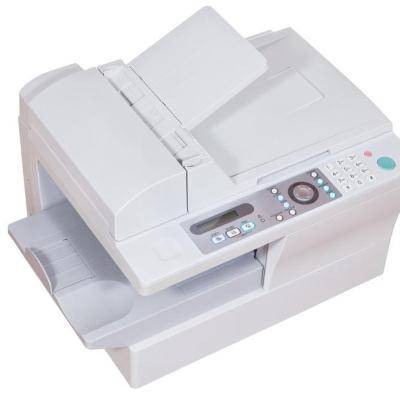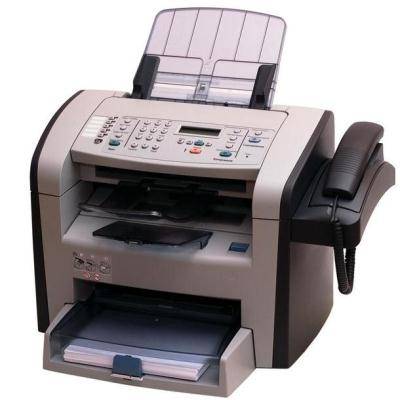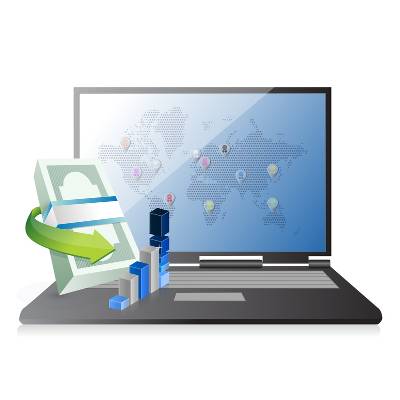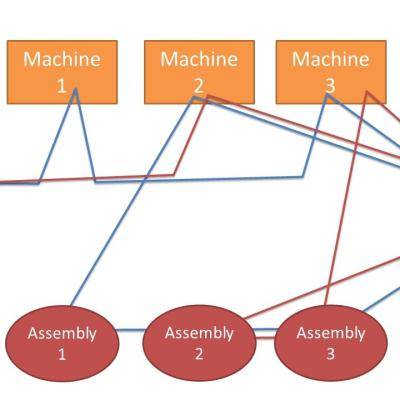As a business owner, if you've ever looked into training seminars, you've probably been taken back by the price. Your industry likely has a whole slew of organizations dedicated to business training, and there are often training courses on specific software packages you use in your day-to-day line of business. Your employees may know full-well how to do their job, but are they doing it as effectively as possible in order to drive business forward?
Directive Blogs
When you mention the term 'disaster recovery,' most people think about the big ground-shattering events like earthquakes, fires, floods, tropical storms, etc. While these natural events are certainly disasters and devastating in their own right, smaller things can constitute as a disaster for your business, and they aren't seasonal.
Businesses these days depend on having reliable, fast desktop computers. The trouble is, these high-end desktops offer plenty of resources that never get touched, making them underutilized. Huge hard drives and extremely fast CPUs mean each desktop has more capabilities than most users will ever tap into.
You've probably heard of cloud technology. All the big names in the technology industry are talking about it; but for a lot of people, it's still just a buzz word. Microsoft has been pushing the idea of a cloud for a while, with a couple sitting at an airport waiting for a layover, with the end result being that the cloud ceases their boredom by letting them stream movies from home. What exactly is the cloud and why does it matter for businesses?
Small business owners are discovering they don't need to be chained to their desk to use their computer, and are finding it much easier to be productive with the ability to take their workstation with them where ever they go. The concept isn't new, but the trend hasn't caught on for a lot of small businesses. Business owners who have ditched their desktop for a laptop have a whole world of benefits. Let's take a look at what some of those benefits are.
Let's get theoretical here. Let's say your friend Hank suffers from chest pain. It could be nothing, but chest pain isn't something you want to mess around with, so you suggest that Hank goes to a doctor to get it checked out. There are certain things in life you don't just let happen without getting an assessment to make sure they don't turn into bigger issues, right? Your business's IT security is one of those things.
2011 has been a busy year for security experts worldwide. Major corporations have been reporting harmful attacks by hackers. So far, technology news site CNET has reported over 80 known major hacks since March that have been publicized. The publication of these hacks is inevitable, especially when user-data, contact information, and credit card information is at risk, and that publication can easily cause a PR disaster which can take loads of time and money to rectify (and in some cases, just can't be rectified). The big questions are who is at risk, are Upstate New York small businesses at risk, and what kinds of IT solutions need to be deployed to prevent data-theft and other intrusions.
Software is expensive, especially business critical software. On top of that, as a small business expands, more software licenses need to be purchased for new employees. Organizations such as the Software & Information Industry Association and the Business Software Alliance are always looking for businesses that are guilty of stealing software, and businesses that get busted get hefty fines exponentially higher than the price of the software licenses.
There has been a growing trend where businesses are allowing more employees to work from home or other remote locations. Technology makes this possibly by letting users remote into their work environment securely as if they were sitting at their desk at the office. VoIP phone solutions can even bring the worker's office phone to them, no matter where they are.
We're in an interesting era. Consumer electronics have been changing the way we communicate, socialize, and get things done. We've all experienced a recent huge evolution in the communication world with the explosion of mobile phones, with more than 4.6 billion mobile subscribers worldwide. Our technology is getting smaller and much more capable, but does that mean we'll be moving away from the typical computer-and-desk to get most of our work done?
As you may know, Sony's online gaming service, the Playstation Network, has been getting a lot of media coverage lately due to a major attack by hackers last month. Sony is a massive global company with billions of dollars and stockholders and spans multiple industries, but even a giant can teach us all a lesson that relates to our comparably small-fry organizations.
Who isn't looking to spend a little less or get more out of their current investments? The costs of day to day business for small businesses need to be within budget, but you still need to give your staff the tools they need to get the job done. Here are some tips for cutting costs without making big sacrifices.
Voice Over IP phone systems add a lot of great features that businesses can take advantage of, and are improving the way companies are using their voice communication. Besides the fact that supporting older analogue phone systems is becoming increasingly harder as technology carries us forward, here are 7 reasons why Upstate New York businesses should switch over to voice over IP.
Nobody wants to spend more than they have to, especially when it comes to those necessary evils like bills, utilities, insurance, and the general costs of keeping things running smoothly. At Directive, our goal is to provide outstanding enterprise-level solutions for small business prices. Let's talk about a few ways to cut long term IT costs.
Believe it or not, IT companies like DirectiveSHORT work a lot like other businesses. We have many of the same needs in our business; from accounting to organizing data to marketing ourselves. As an IT company, yes, we can manage your workstations, servers, and network, but there are other solutions we have up our sleeves that our clients can take advantage of, that just make sense for an IT company to provide, no matter what.
 Are you looking for a new computer service provider? Deciding on a company to handle your technology is a choice that carries a little more weight than let's say, switching your cable provider. You are essentially giving this new computer company access to all of your company's sensitive information. No pressure!
Are you looking for a new computer service provider? Deciding on a company to handle your technology is a choice that carries a little more weight than let's say, switching your cable provider. You are essentially giving this new computer company access to all of your company's sensitive information. No pressure!
We'd really like to gear this conversation towards the other Oneonta business owners out there who might not have a solid plan when it comes to IT & Computer Support. At DirectiveSHORT, we deal with a lot of the same business-related issues that our clients do. Marketing, driving the business forward, taxes, internal policies, you name it. Believe it or not, we also have our own IT infrastructure that needs to be kept up and maintained. We see the same kinds of expenses (after all, working on our OWN technology internally is time our techs could be doing their jobs). We've put together a few big mistakes that we've seen businesses make that take much less effort to prevent than they do to fix later on when it is too late.
Virtualization isn't new for small businesses, some companies have been enjoying the benefits of server virtualization for many years. However, the concept is new to other growing organizations. Virtualization allows you to consolidate the number of servers you have in your company using one of several virtualization packages. Let's take a look at a few major reasons to consider server virtualization.
Directive has had the pleasure of working with David Mann for over 10 years. David owns Alta Log Homes in Upstate NY. Alta is a leading manufacturer of Log Homes. David is an expert in building Green, Energy Star dream homes and a great guy. His website is http://www.altaloghomes.com. We set him up with the Ultimate Social Media Rig a few months ago along with some coaching services to get him started. He's been pretty religious about posting and using it. He sent me an email asking what recommendations I'd have to get more out of it now that he's "warmed up" and has a little more experience with Social Media.
While news sources might lead the layman to believe that most issues facing the typical SMB come from cyber criminals lurking online, the reality is far less dramatic. However, this misconception makes these issues no less serious, and still things to prepare for. Let’s review some of the most common causes of technological issues in the office environment.
The small business is under siege. Many small business owners do what they can to compete, but it seems like there is no solution for their revenue woes, as larger organizations are able to attract a larger part of the market share. This has been the case for some time, but there are market forces at work today that make it even more difficult for businesses to contend with competitors that have more resources.
The modern small business will face several challenges in 2018. The world is changing, and with it, so is business. For many small businesses, this can either be looked on as the opportunity they’ve been waiting for, or, it can be viewed as the beginning of the end. No matter what situations you are faced with this year, understanding what problems your business faces, and how to solve them is imperative to your small business’ success.
Small businesses often have to rely on different means to achieve the same level of project management as enterprises. This is due to the demands of project management being significantly different in scope, but also the way that your company implements new technology solutions. Instead of worrying about the specifics of project management, you can outsource these responsibilities to a managed service provider.
Miscommunication is something that plagues even the best, most organized organizations. Small businesses might be more tight-knit than your traditional enterprise, but humans are prone to miscommunication, and can be a major problem. We can help your business improve the way that it communicates and collaborates, and it all starts by considering how you can eliminate miscommunication in your office.
How much value does your company get from its technological assets? This might seem like a simple question, but it doesn’t have a simple answer. You can implement the latest and greatest solutions, but you don’t necessarily gain value from them, or as much as similar organizations in your field. With businesses aiming to cut costs and secure a profitable future, how can you make sure that IT is providing value to your organization?
Telecommuting (also known as working remotely) is where some or all of your staff have the flexibility to work in the location of their choosing (and in some cases, the hours that they choose). Not to be confused with freelancing, telecommuters are dedicated employees who work under a management style geared towards the final results (as opposed to how the work gets done). While telecommuting isn't for everybody, it is often practiced. Microsoft is well known for having certain positions where the employee spends most of their day in a coffee shop working remotely, and that trend certainly doesn't stop with the big M.
Does your SMB have an internal IT department? Chances are that it is a major pain point for your organization, and even if you do have one, it might be bogged down with so much work that mistakes can happen and threats can slip through the cracks. Sometimes the best way to protect your network is to know where and how threats manage to get there in the first place.
 Most small and medium-sized businesses aren’t new to IT. For the past 15 years or so, SMBs have been attempting to keep up with their larger competitors through the implementation of technology systems. They’ve instituted computing systems from servers to workstations to mobile devices, peripheral technologies like fax machines and copiers, “state of the art” networking technology, and all other sorts of tech, just trying to keep a leg up on their competition.
Most small and medium-sized businesses aren’t new to IT. For the past 15 years or so, SMBs have been attempting to keep up with their larger competitors through the implementation of technology systems. They’ve instituted computing systems from servers to workstations to mobile devices, peripheral technologies like fax machines and copiers, “state of the art” networking technology, and all other sorts of tech, just trying to keep a leg up on their competition.
 As expected, mobile technology is a consistent part of daily business operations for many companies around the world. Employees love taking advantage of the mobility these devices offer, making their home office just as useful as their in-house workstation. However, a mobile device management solution needs to be strictly adhered to in order to optimize security and guarantee that a stray smartphone doesn’t expose your data to unexpected eyes.
As expected, mobile technology is a consistent part of daily business operations for many companies around the world. Employees love taking advantage of the mobility these devices offer, making their home office just as useful as their in-house workstation. However, a mobile device management solution needs to be strictly adhered to in order to optimize security and guarantee that a stray smartphone doesn’t expose your data to unexpected eyes.
 It’s important for a business to be connected with their community. Even if you have a global market, it’s still important to invest in the city you’re headquartered in. It’s where you and your employees live, and if you can build relationships and connect with other organizations in your community, only good things can come from it.
It’s important for a business to be connected with their community. Even if you have a global market, it’s still important to invest in the city you’re headquartered in. It’s where you and your employees live, and if you can build relationships and connect with other organizations in your community, only good things can come from it.
Here are three easy ways your business can become more involved and respected within your community.
 The CEO baton at Microsoft has been passed from Steve Ballmer to Satya Nadella, making Nadella the third CEO in Microsoft's well-publicized history. You may not think that this will have an impact on your business, but considering how intertwined Microsoft is with the the global economy, you may be surprised to learn that this move will affect your company.
The CEO baton at Microsoft has been passed from Steve Ballmer to Satya Nadella, making Nadella the third CEO in Microsoft's well-publicized history. You may not think that this will have an impact on your business, but considering how intertwined Microsoft is with the the global economy, you may be surprised to learn that this move will affect your company.
 You may have realized that marketing and advertising tactics are shifting toward reaching mobile leads. Even superstar companies like Google and Facebook are delegating more marketing dollars to their mobile marketing budgets after a discovery that nearly one-fifth of Google's revenue comes from mobile searching. Here are three ways your company can start up your mobile marketing initiative.
You may have realized that marketing and advertising tactics are shifting toward reaching mobile leads. Even superstar companies like Google and Facebook are delegating more marketing dollars to their mobile marketing budgets after a discovery that nearly one-fifth of Google's revenue comes from mobile searching. Here are three ways your company can start up your mobile marketing initiative.
 For most small business owners, your average week includes several moments where you look at your expense sheet and search for ways to cut costs and improve the profitability, and thus, the sustainability of your company. Around the holidays, when business picks up for everyone, some small businesses run into problems that stunt their net profitability. The inability to spend the money that larger companies can, will often result in handcuffing a business' ability to compete.
For most small business owners, your average week includes several moments where you look at your expense sheet and search for ways to cut costs and improve the profitability, and thus, the sustainability of your company. Around the holidays, when business picks up for everyone, some small businesses run into problems that stunt their net profitability. The inability to spend the money that larger companies can, will often result in handcuffing a business' ability to compete.
 As a business owner, your business is your baby. Therefore, it's easy to take it personally when a customer says something negative about your company. It feels kind of like a stranger calling your newborn baby ugly. Don't overreact to negative opinions by overhauling your business model; you can actually use negative customer feedback to your advantage.
As a business owner, your business is your baby. Therefore, it's easy to take it personally when a customer says something negative about your company. It feels kind of like a stranger calling your newborn baby ugly. Don't overreact to negative opinions by overhauling your business model; you can actually use negative customer feedback to your advantage.
 Upgrading your network and shopping for new technology can be a daunting task. Technology is expensive and it's an investment that will help your business grow, but that's only if you purchase what you need. A poor technology purchase can actually be a budget buster. To maximize your new technology purchases, it's worth it to partner with IT professionals.
Upgrading your network and shopping for new technology can be a daunting task. Technology is expensive and it's an investment that will help your business grow, but that's only if you purchase what you need. A poor technology purchase can actually be a budget buster. To maximize your new technology purchases, it's worth it to partner with IT professionals.
 In a recent economics survey of small to medium-sized businesses by Oxford University, it was discovered that two-thirds of companies believe that technology is the key to transforming their business in order to "achieve longevity and sustainable growth." This survey reveals a lot about how businesses worldwide feel about technology. Does your business identify with any these trends?
In a recent economics survey of small to medium-sized businesses by Oxford University, it was discovered that two-thirds of companies believe that technology is the key to transforming their business in order to "achieve longevity and sustainable growth." This survey reveals a lot about how businesses worldwide feel about technology. Does your business identify with any these trends?
 You don't need us to tell you that running a small business has its inherent difficulties. There are all types of factors that could literally destroy everything that the hardworking people in your organization have accomplished. The problem is that these situations aren't limited to just disasters such as flood or fire. Below are three factors that may wreak havoc with your small business in 2013.
You don't need us to tell you that running a small business has its inherent difficulties. There are all types of factors that could literally destroy everything that the hardworking people in your organization have accomplished. The problem is that these situations aren't limited to just disasters such as flood or fire. Below are three factors that may wreak havoc with your small business in 2013.
 Everything feels extra difficult for small businesses. Technology makes things easier; yet technology costs money, and the lack of money tends to be at the root of every problem for businesses of all sizes. Big businesses can afford the best technology, which is one reason they do so well. We level the playing field by making big business solutions affordable.
Everything feels extra difficult for small businesses. Technology makes things easier; yet technology costs money, and the lack of money tends to be at the root of every problem for businesses of all sizes. Big businesses can afford the best technology, which is one reason they do so well. We level the playing field by making big business solutions affordable.
 Many small businesses are switching their phone systems to Voice over Internet Protocol and seeing dramatic savings over traditional phone plans, especially when it comes to long distance charges. Once the switch to VoIP is made, small businesses are discovering there are more benefits to VoIP that make their business appear bigger and more professional!
Many small businesses are switching their phone systems to Voice over Internet Protocol and seeing dramatic savings over traditional phone plans, especially when it comes to long distance charges. Once the switch to VoIP is made, small businesses are discovering there are more benefits to VoIP that make their business appear bigger and more professional!
 Computers have been designed to be easy and intuitive to use. Just about anybody can figure out how to open files and browse the Internet, but PCs are still complicated machines that require technical knowledge to fix and maintain. When it comes to the technical stuff, it's better to leave it to the pros.
Computers have been designed to be easy and intuitive to use. Just about anybody can figure out how to open files and browse the Internet, but PCs are still complicated machines that require technical knowledge to fix and maintain. When it comes to the technical stuff, it's better to leave it to the pros.
 Every generation improves the technology of the previous generation. Sometimes technology can improve at such a rapid rate that it can make other technologies obsolete. It takes a bit of know how to determine which technologies will last and which ones are just fads. We are here to help you make sense of all of these rapid changes.
Every generation improves the technology of the previous generation. Sometimes technology can improve at such a rapid rate that it can make other technologies obsolete. It takes a bit of know how to determine which technologies will last and which ones are just fads. We are here to help you make sense of all of these rapid changes.
 We are not guaranteed a life without problems. Problems will happen and your plans will be ruined (okay, it's not ALWAYS that bad!). While you can't totally eliminate problems from life, you can greatly reduce them by being proactive. This proactive problem solving approach also works great with technology!
We are not guaranteed a life without problems. Problems will happen and your plans will be ruined (okay, it's not ALWAYS that bad!). While you can't totally eliminate problems from life, you can greatly reduce them by being proactive. This proactive problem solving approach also works great with technology!
 Procrastinators of the world unite... tomorrow! Many people who feel the constant and crushing pressure of deadlines, and who have a habit of being late with deadlines, would identify themselves as procrastinators. Stanford professor John Perry has discovered a method to use procrastination as a tool to get more done, he calls this structured procrastination.
Procrastinators of the world unite... tomorrow! Many people who feel the constant and crushing pressure of deadlines, and who have a habit of being late with deadlines, would identify themselves as procrastinators. Stanford professor John Perry has discovered a method to use procrastination as a tool to get more done, he calls this structured procrastination.
 Every enterprise, whether it is a successful one or not, has to deal with its fair share of adversity. One of the most rampant difficulties a business is forced to deal with is the necessary ability to secure prompt payment for the goods and services it provides its customers. For small and medium-sized businesses, or even one-man bands, they likely do not have the deep pockets many larger organizations have. Not being able to timely collect income can make sustaining business operations all but impossible. With remote payment applications that are now available for mobile devices, collecting crucial revenue at a mobile point-of-sale is making collecting that is money easier.
Every enterprise, whether it is a successful one or not, has to deal with its fair share of adversity. One of the most rampant difficulties a business is forced to deal with is the necessary ability to secure prompt payment for the goods and services it provides its customers. For small and medium-sized businesses, or even one-man bands, they likely do not have the deep pockets many larger organizations have. Not being able to timely collect income can make sustaining business operations all but impossible. With remote payment applications that are now available for mobile devices, collecting crucial revenue at a mobile point-of-sale is making collecting that is money easier.
 Everybody has a weakness; Superman has Kryptonite, the Wicked Witch of the West had water, and the Death Star had a womprat-sized exhaust port. Character weaknesses make for solid storylines because they drive conflict. Your company has its own set of vulnerabilities that you may not know about, and unlike stories, conflict in business is not a good thing. Here are a few of the lesser known IT weaknesses, and what you can do to resolve them.
Everybody has a weakness; Superman has Kryptonite, the Wicked Witch of the West had water, and the Death Star had a womprat-sized exhaust port. Character weaknesses make for solid storylines because they drive conflict. Your company has its own set of vulnerabilities that you may not know about, and unlike stories, conflict in business is not a good thing. Here are a few of the lesser known IT weaknesses, and what you can do to resolve them.
 Despite having more paperless solutions at our disposal, it looks like offices will always have the need for a printer. Maybe you are not quite ready to take the great paperless leap, but you can reduce the amount of resources and power consumed from using your printers with the help of a print server solution.
Despite having more paperless solutions at our disposal, it looks like offices will always have the need for a printer. Maybe you are not quite ready to take the great paperless leap, but you can reduce the amount of resources and power consumed from using your printers with the help of a print server solution.
 Business growth is a double edged sword. It is great that you are increasing revenue, but you now have to deal with growing pains. These growing pains are often felt with your technology. Is your network cobbled together with random computers and your wires are one big tangle ball? Directive can help relieve these IT growing pains with network mapping.
Business growth is a double edged sword. It is great that you are increasing revenue, but you now have to deal with growing pains. These growing pains are often felt with your technology. Is your network cobbled together with random computers and your wires are one big tangle ball? Directive can help relieve these IT growing pains with network mapping.
 It always feels a bit peculiar to come across a fax machine still being used in the modern office. With all of our digital advancements, the fax machine should have gone the way of the floppy disk. Contrary to common sense, it is estimated that there are 131 million fax machines still in operation around the world.
It always feels a bit peculiar to come across a fax machine still being used in the modern office. With all of our digital advancements, the fax machine should have gone the way of the floppy disk. Contrary to common sense, it is estimated that there are 131 million fax machines still in operation around the world.
 In business, you will gladly take every advantage that you can in regards to communications. This is because better communications will positively impact everything you do. Switching your phones system from a traditional carrier to a Voice over IP (VoIP) internet solution will not only give your business a communications edge, but also save you 50-70% on your phone bill.
In business, you will gladly take every advantage that you can in regards to communications. This is because better communications will positively impact everything you do. Switching your phones system from a traditional carrier to a Voice over IP (VoIP) internet solution will not only give your business a communications edge, but also save you 50-70% on your phone bill.
 You are confident that your employees are good at problem solving, this is why you hired them. Your staff may even thrive on finding solutions with limited resources and keeping operations within budget. It is wonderful that you have surrounded yourself with skillful people, but using your bright staff to fix an IT problem may hurt your business in the long run.
You are confident that your employees are good at problem solving, this is why you hired them. Your staff may even thrive on finding solutions with limited resources and keeping operations within budget. It is wonderful that you have surrounded yourself with skillful people, but using your bright staff to fix an IT problem may hurt your business in the long run.
 Does it sometimes feel that business is going well, yet your bottom line is taking a hit? If time is money, then downtime is anti-money, and downtime may be your biggest budget buster. To help you determine exactly how much your IT downtime is costing you, we have two mathematical formulas you can apply to your business.
Does it sometimes feel that business is going well, yet your bottom line is taking a hit? If time is money, then downtime is anti-money, and downtime may be your biggest budget buster. To help you determine exactly how much your IT downtime is costing you, we have two mathematical formulas you can apply to your business.
 In a 2012 Wrike.com surveyed 1,074 workers, 83% of respondents reported working at home for at least part of the workday. Chances are, you have employees working at home, and they are loving it! In fact, employees enjoy working at home so much 78% would forgo free meals, and 25% would accept a reduction in salary, just for the opportunity to work at home!
In a 2012 Wrike.com surveyed 1,074 workers, 83% of respondents reported working at home for at least part of the workday. Chances are, you have employees working at home, and they are loving it! In fact, employees enjoy working at home so much 78% would forgo free meals, and 25% would accept a reduction in salary, just for the opportunity to work at home! If Back to the Future's Marty McFly time traveled to the modern office, he would probably feel a little disoriented. He would see employees squinting at little televisions, mobile devices right out of Star Trek, and no rows of file cabinets. Then Marty would notice a fax machine and feel right at home, because fax machines have been around forever.
If Back to the Future's Marty McFly time traveled to the modern office, he would probably feel a little disoriented. He would see employees squinting at little televisions, mobile devices right out of Star Trek, and no rows of file cabinets. Then Marty would notice a fax machine and feel right at home, because fax machines have been around forever.
What a weird post this is going to be. We've recently launched a software application called JoomConnect. It's been having some great success. It's in part responsible for bringing a lot of work to our small company bringing our staff from 9 to 17 strong in a very short time (7 of them in 60 days). It's been awesome and we've been training and getting everyone up to speed. We have been super impressed with the new members of our team and we'll be introducing them shortly (soon as we can catch our breath).
We are working for some of the industry greats, like ConnectWise, HTG Peer Groups and many incredible IT/MSP Partners that have adopted JoomConnect for use in their businesses as well as our awesome local clientele.
The time to implement a social media policy is now. Your social media policy outlines for employees your companies guidelines or principles for communicating in the online world. Your company should have a communications policy in place that spell out your expectations for phone and email, it’s important that you add social media and online site usage to this policy.
Business owners, this one is definitely for you. You've probably experienced the fact that shaving expenses here and there can lead to more flexibility and long-term savings, but at what cost? Are you limiting your company by nixing those extra services and costs? Sometimes you can get more and still save money. Let's look at a few ways Upstate New York businesses can do just that.
Here's a scenario: Tom's computer is acting up and getting a blue screen error a couple times a day. Obviously this is a problem because it drastically cuts into Tom's efficiency. Tom is a smart guy though, so his manager asks him to see if he can fix it before calling support and putting in a ticket. After all, tech support costs money. Tom spends about 4 hours across the next few days researching the issue, attempting a few things, and finally fixes it. Way to go Tom! You just saved the company money... or did you?
Security is an important aspect to a company's continuity, and while portions of business security involve things like anti-virus and firewalls, other aspects of security can't be handled by a piece of equipment. In these cases, your organization needs to create security policies, and keep them up to date as the company grows and changes. There are many policies and sub policies that are necessary for any organization that, if non-existent, can cause chaos down the road.
For a small or midsize business, technology budgets are naturally fairly slim. It goes without saying that a company needs to get the best bang for their buck with their IT infrastructure, and it's not uncommon to see workstations and other devices still in play years after their prime. This leads to underperforming technology, which in turn, limits what your bottom line can accomplish (remember, your team is only as good as your worst player). Some small businesses are approaching technology in ways that would normally be reserved for HR's interactions with employees, but they are finding that this can improve performance.
At many businesses, if you look in the waste bin or the recycle bin, you'll probably find a lot of paper. Paper is one of the most common waste products at businesses and as such is also one of the biggest sustainability opportunities for businesses large and small. The environmental benefits are great, but going paperless has some huge benefits for small businesses beyond being green.































